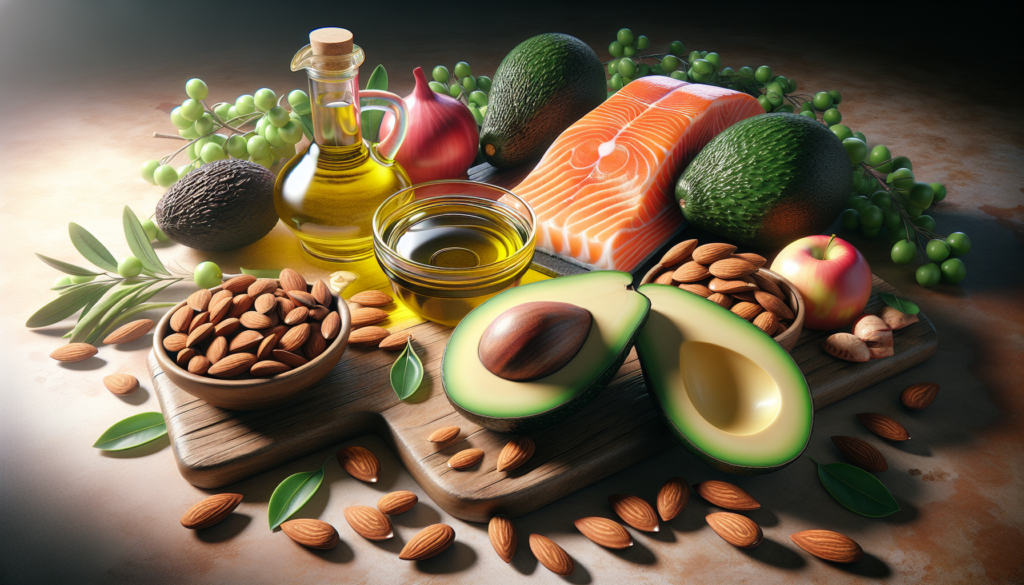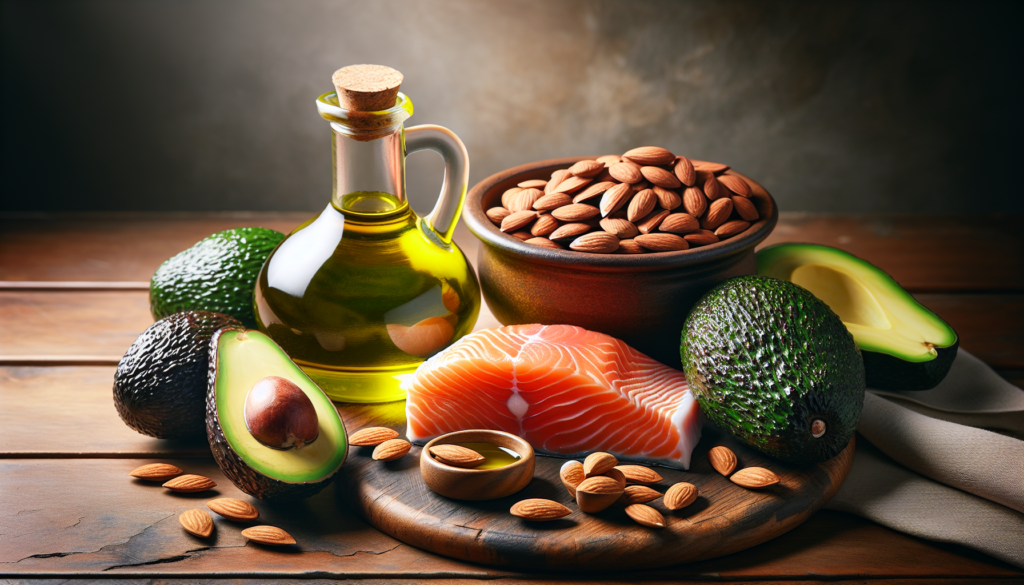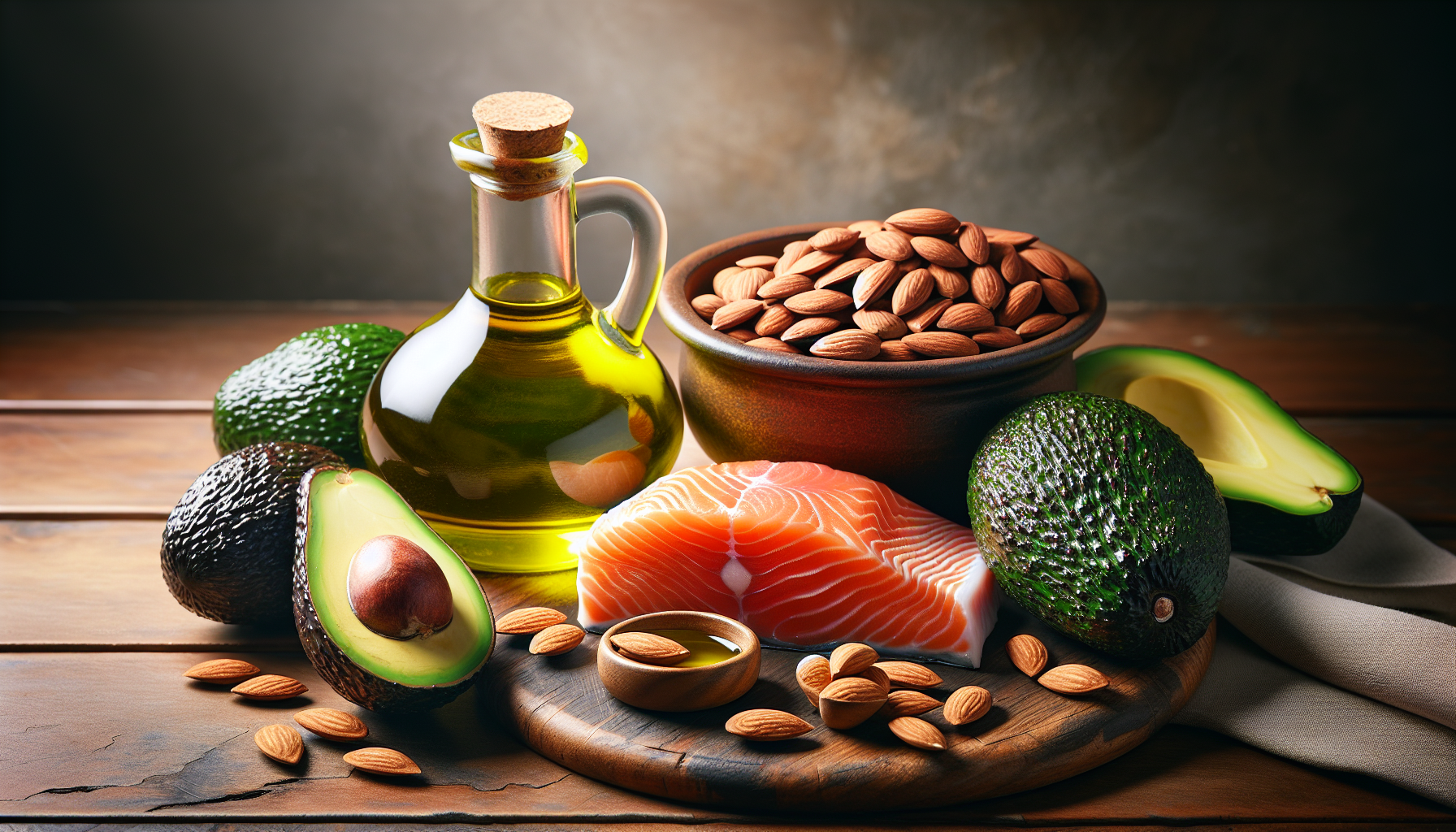Have you ever wondered why avocados get invited to every healthy food party? They swagger in, bringing their fats and oils like well-dressed guests at a nutrition gala. But what is it about these fats that have everyone so enamored? Are fats friend or foe? Fear not, dear reader, for we are about to embark on a journey to uncover the mysterious role of healthy fats in nutrition. So, grab your guacamole, and get comfortable.
The Skinny on Fats: A Love-Hate Relationship
In the land of nutrition, fats have an identity crisis that would keep any self-help book within arm’s reach. For decades, they’ve been cast in the role of villain, only to have recent science shine a gentler spotlight upon them. In essence, fats aren’t the villain of this nutritional saga, but rather misunderstood characters. Some are definitely friendlier than others, though.
Different Fats, Different Hats
Before we spill the olive oil, let’s straighten out our fats. There are three primary classes you should know about: unsaturated fats, saturated fats, and trans fats. Think of them like a high school drama club—each type playing a different role, with varying degrees of applause from the health world.
Unsaturated Fats: The Heroes
Unsaturated fats come in two leading roles: monounsaturated and polyunsaturated fats. They are like the overachieving kids who excel in academics and sports. Both types are heart-friendly and help to lower cholesterol levels, balance blood pressure, and provide key nutrients.
-
Monounsaturated Fats: Found in olive oil, avocados, and nuts, they’re the smooth talkers everyone wants to be friends with. They help reduce bad cholesterol and might even keep your heart singing like a canary on a sunny morning.
-
Polyunsaturated Fats: Frequently spotted in fatty fish, walnuts, and flaxseeds, polyunsaturated fats are rich in omega-3 and omega-6 fatty acids. These guys are like the debate team captains—they aid in inflammation reduction and brain development. They’re brain food, after all.
Saturated Fats: The Frenemies
Saturated fats are like those unreliable friends who sometimes forget your birthday but occasionally throw you a surprise party. They’re found primarily in animal products and some plant oils. While they aren’t the worst, moderation is your best buddy here. Too much of them can lead to increased cholesterol levels, but they also play a role in hormone production and cell health.
Trans Fats: The Villains
If there’s a drama club nemesis, it’s trans fats. Born out of hydrogenation (think of it as a mad scientist’s experiment gone wrong), these fats reside in processed foods, margarine, and baked goods. They’re the bullies you never want to meet—they clog up arteries, increase the risk of heart disease, and frankly, should be avoided like that jigsaw puzzle with missing pieces.
The Magical Role of Healthy Fats
Now that we’ve identified our fats like characters in a soap opera, let’s uncover the roles they play in this grand production called life. While they often strut around your kitchen like nutrition’s vital actors, their function within your body deserves its own standing ovation.
Energy Provider Extraordinaire
Fats are like the Energizer bunnies of nutrition. Gram for gram, fats provide more than twice the energy of carbohydrates or proteins. This doesn’t mean you should start eating butter by the spoonful, but rather appreciate fats as a dense energy source that your body can rely on when carbohydrates are off doing their own thing.
Essential Nutrient Transporters
Certain vitamins are fat-soluble, meaning they need their fatty friends to transport them through the body. Vitamins A, D, E, and K enjoy hopping on fats like they’re Uber drivers. Without fats, these vitamins would wander aimlessly, like tourists without a map.
Brain Builders and Body Protectors
Your brain is practically made of fats. They’re akin to the architects of your mental faculties, constructing and maintaining the structure of brain cells. They also cushion vital organs, acting like protective bodyguards that absorb shocks and maintain body temperature. Who knew they could be so thoughtful?
Hormone Helpers
Fats are integral to hormone production. If your body were a Shakespearean stage, fats would have a hand in orchestrating the hormonal plays. They make cholesterol, which is a precursor to steroid hormones like estrogen and testosterone.

The Science of Fats and Heart Health
Now, let’s consult the scientists who often look like excited kids spilling their juice boxes over impending discovery. Science reveals that not all fats have it in for your heart. Some are heart helpers, while others are more like heart hinderers.
Good Fats: Boosters for Your Ticker
Current evidence champions unsaturated fats as allies of the heart. They assist in lowering LDL cholesterol levels (think of it as bad cholesterol intent on clogging up your arteries) while boosting HDL cholesterol—the commendable type that carts away the bad guys.
Let’s do a bit of math (without inducing horrible flashbacks of high school algebra):
| Heart-Healthy Fat | Source | Benefit |
|---|---|---|
| Omega-3 | Fatty fish (e.g., salmon, mackerel) | Lowers inflammation and heart disease risk |
| Monounsaturated | Olive oil, avocados | Reduces LDL cholesterol |
| Omega-6 | Walnuts, sunflower seeds | Supports cholesterol levels and skin health |
The Cursed Fats: Not So Heartfelt
Saturated and trans fats are often cookin’ up trouble. A diet rich in these can lead to increased cholesterol levels and possible heart disease. While moderation is key for saturated fats, trans fats are best left out altogether. Think of them as the exes of the dietary world—it’s better to have loved and lost.
Incorporating Healthy Fats into Your Diet
So, dearest reader, how on Earth do you saddle these healthy fats into your own life? It’s simpler than teaching a cat to sit (though equally satisfying).
Buttery Avocado Swaps
Instead of buttering your toast, why not spread a lavish avocado? It’s creamy, it’s dreamy, and packs a punch of healthy fats. For an added zing, sprinkle some salt and pepper or a dash of your favorite spice.
Nutty Snacks
Don’t let the afternoon hunger monster scare you. Armed with almonds, walnuts, or pistachios, you’ll feel like you’re belting a victory tune. Portion control is your buddy here, but consider nuts your new armor against snack-time sabotage.
Oil Dodging Drama
Swap those sneaky oils for olive or canola oil. Whether you’re sautéing some veggies or crafting a salad dressing masterpiece, these oils ensure you get a healthy dose of monounsaturated fats without drama.

Conclusion: The Fats’ Finale
As we toddle toward our conclusion, ponder the role of fats not as burdensome members of your diet but as intriguing heroes—sometimes villains—gracing the play we call nutritional wellness. So next time you encounter an avocado, don’t just see it as a fruit that resisted becoming a vegetable. Instead, recognize it as a nutritious nod to the wonder of healthy fats and their starring role in your body’s vibrant tale.
And let us not forget moderation—the unsung hero holding this nutritional theater together. With it, you can stride confidently through mealtime, knowing that only the best fats made it onto your plate. Who knew fats could be so…fatabulous?
